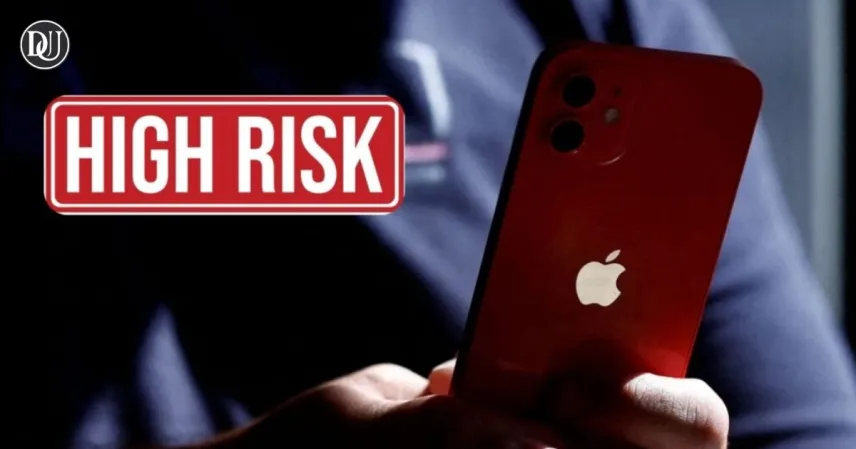In a concerning development for millions of smartphone users across India, the Indian Computer Emergency Response Team (CERT-In) has issued an urgent high-risk security alert for iPhone users. This official government warning deserves your immediate attention if you own an Apple device.
The Threat Is Real—And It's Happening Right Now
This isn't just another routine security update. According to the government advisory, hackers are actively exploiting vulnerabilities in iPhones across the country. The security flaws affect a wide range of devices—from the iPhone 8 series all the way to the latest iPhone 15 models, as well as iPads and Mac computers.
What makes this particularly alarming is that these vulnerabilities could allow attackers to gain complete control over your device without you even realizing it. Think about what's on your phone right now—photos of your family, private messages, banking details, work emails. All of this could be accessible to cybercriminals if your device remains unprotected.
"But My iPhone Is Supposed to Be Secure!"
Many of us chose Apple devices precisely because of their reputation for security. The company has built its brand on privacy protection and secure systems. However, this alert serves as an important reminder that no technology is completely immune to security threats.
When even the most security-conscious tech giant faces vulnerabilities, it highlights just how persistent and sophisticated today's cyber threats have become. For the average Indian iPhone user who stores everything from UPI payment information to personal photos on their device, this is a wake-up call about digital security.
![]()
Five Minutes That Could Save Your Digital Life
Fortunately, protecting yourself is straightforward. Apple has already released security patches that address these specific vulnerabilities. The solution is to update your device immediately to:
- iOS 17.5.1 (for iPhones)
- iPadOS 17.5.1 (for iPads)
- macOS 14.5.1 (for Mac computers)
The update process takes just a few minutes but provides crucial protection against these active threats. To update your iPhone, simply go to Settings > General > Software Update and follow the prompts to download and install the latest version.
While waiting for those few minutes might feel inconvenient—especially when you're busy with work or about to catch your favorite show—it's a small investment compared to the potential consequences of having your personal data compromised.
Beyond the Headlines: Understanding What's at Stake
For many Indians, smartphones have become central to daily life. We use them for everything from banking and shopping to storing precious family photos and maintaining our social connections.
A security breach could mean:
- Unauthorized access to your banking apps and financial information
- Theft of passwords and login credentials
- Access to private messages and personal photos
- Potential identity theft
- Compromise of work-related sensitive information
The especially troubling aspect of this particular vulnerability is that attacks can happen silently. There might be no obvious signs that your device has been compromised until it's too late.
Creating a Digital Safety Net: Next Steps
While updating your device is the most urgent step, this security alert offers an opportunity to strengthen your overall digital security:
- Enable automatic updates to ensure you're protected against future threats without having to remember to check manually.
- Review app permissions on your device—many apps request access to more data than they actually need. Go to Settings > Privacy to see which apps have access to your location, contacts, photos, and more.
- Set up two-factor authentication for important accounts, adding an extra layer of security beyond just passwords.
- Be cautious with links and attachments, even when they appear to come from trusted sources.
- Regularly back up your data so that even in worst-case scenarios, your important information remains safe.
The Changing Landscape of Mobile Security
This high-risk alert is part of a broader trend of increasing cybersecurity threats targeting mobile devices in India. As our country continues its rapid digital transformation, with millions conducting banking, shopping, and even accessing government services through smartphones, we've become an attractive target for cybercriminals worldwide.
Security experts have noted that as traditional computer systems become more secure, attackers are increasingly focusing on mobile devices—which often contain just as much valuable information but may not be protected with the same level of security measures.
This incident serves as a reminder that digital security requires ongoing attention. Just as we've learned to lock our doors and secure our physical possessions, protecting our digital lives needs to become second nature.
For the millions of iPhone users across India, the message is clear: take five minutes to update your device today. Your future self will thank you for it.










